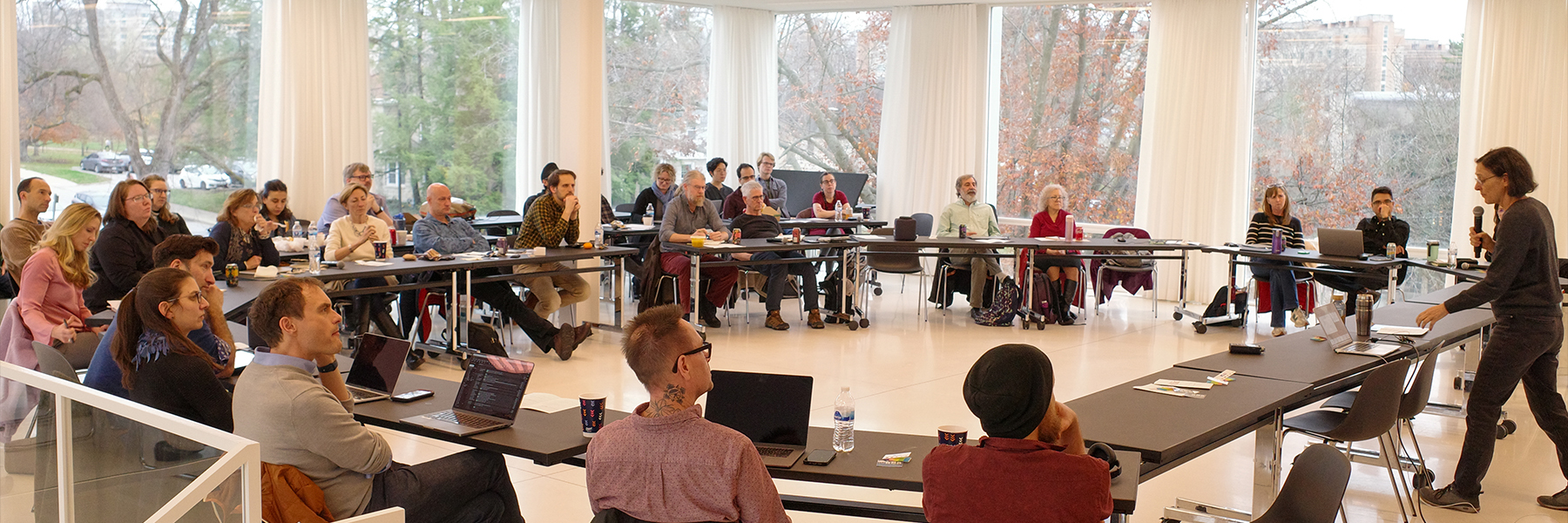TBS: Free Speech and the University
April 9–11, 2026
& 4 preliminary workshop meetings, TBA
The focus for this year’s symposium will be “Free Speech and the University.” This topic is intended to embrace and encourage interdisciplinary dialogue about the university’s multiple roles: as a place where knowledge is produced and disseminated by disciplinary experts who must be free of political constraints; as a home for expansive freedoms of thought and expression uninhibited by rigid dogmatism; and as a model for the possibilities of collegiality in governance and civility in discourse. We welcome proposals from colleagues from all disciplines whose scholarly or creative interests intersect with free speech within the university setting, including those who approach the matter from historical or comparative perspectives.
This workshop group is co-convened by:
Steve Sanders, Maurer School of Law
Russell Valentino, College of Arts and Sciences
2 External fellows will join us this year.
IUIAS welcomes applications from members of the campus community interested in thinking about the epistemological, methodological, conceptual and interpretive potential of contemporary research on Free Speech and the University.
The workshop will be limited to 12-14 participants, drawn from as diverse a range of disciplines as possible. Each participant would contribute a title or two to a common bibliography. This bibliography would constitute the cross-disciplinary “intellectual reserves” held in common by members of the symposium. At the workshop, each member would present some kind of evidentiary artifact (a text, a data set, a model, a case study, an anecdote, an image) relevant to the question at hand. This presentation would be followed by a broad conversation about the artifact presented and the question or problem it poses. The specific outline of the conversation and its possible outcomes will depend greatly on the participants. These might include individual publications or collaboratively authored material such as a white paper.
Participants will receive $1000 in research funds.
To apply, please send a CV and a 250-word statement outlining the reasons for your interest and the relevance of your research to this topic to ias@iu.edu.
DEADLINE for applications: June 10, 2025


